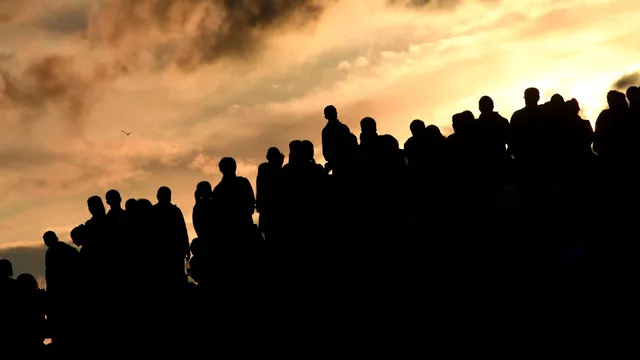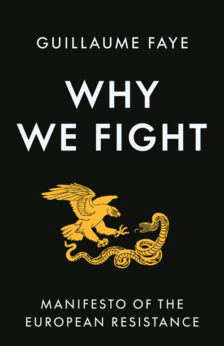The main issue in 2024 remains the same fundamental problem as before: the confrontation between two waves — the waning wave of a unipolar world order with US hegemony and the collective West, and the rising wave of a multipolar world, embodied in BRICS-10.
This problem did not arise now, but as the West, having gained at one historical moment the appearance of sole planetary domination (after the collapse of the USSR), proved incapable of implementing its leadership in practice, new sovereign poles began to assert themselves — Russia and China. Other poles are on the approach — India, the Islamic civilisation, Africa, and Latin America. In total, seven power centres, including the West. Six of them have united in BRICS, beginning to build a multipolar order.
The West continues to cling to its hegemony and attacks the most dangerous opponents to its domination — Russia, China, and the Islamic world. This did not start today but at the very beginning of the 2000s. But the current contrast of the political world map was finally acquired in recent years — especially after the beginning of the Special Military Operation in Ukraine. The operation became the first hot war of the multipolar world against the unipolar one. Until then — especially during President Trump’s first term and due to the rise of populism in Europe — it seemed that a direct clash could be avoided, that the West would peacefully accept multipolarity, trying to fight for a worthy place in the post-globalist world order. This is what Trump meant by calling to drain the globalist swamp in the US itself. But so far, the swamp managed to drain Trump himself and, during the most swampy administration under President Biden, to unleash a bloody conflict in Ukraine, throwing all the forces of the collective West against Russia, the most important pole of the multipolar world.
The main result of 2023 was Russia’s disruption of the Ukrainian counteroffensive, which for the globalists was a decisive moment in the conflict. They supplied Ukraine with comprehensive assistance, including extensive weaponry, significant financial aid, and substantial political, informational, and diplomatic resources. However, when Russia successfully resisted these efforts and started preparing for its own offensive, it became apparent that the extensive support given to the Kiev regime was ultimately futile. However, as long as globalists are in power in the US, they intend to continue the war. And, apparently, not just to the last Ukrainian but to the last globalist.
At the end of 2023, however, a second front opened in the war between the unipolar and multipolar worlds. This time, the West’s vanguard in the Middle East, the State of Israel, in response to the invasion by Hamas, began a systematic genocide of the Gaza population, completely disregarding anything. The USA and the collective West fully supported Tel Aviv’s actions, thus drawing a new line of fracture — the West against the Islamic civilization.
American neoconservatives had already entered this cycle in the early 2000s, resulting in the invasion of Afghanistan and Iraq, and then supporting radical Islamists in Libya, Syria, and so on. Now, the West has again confronted the Islamic world, led by the Palestinians, Yemeni Houthis, Lebanese Hezbollah, and also Iran.
Furthermore, in West Africa, another platform for the anti-colonial struggle against unipolarity and for multipolarity, an alliance of the most resolute countries has emerged — Mali, Burkina Faso, the Central African Republic, Gabon, and Niger, where a series of anti-globalist coups took place. So here, too, a new front has emerged.
Ultimately, Venezuela, led by Nicolas Maduro — whom the USA attempted to replace with their puppet, Guaido, in a move that ended in complete failure — became embroiled in a territorial dispute over the contested Guyana-Essequibo region with British Guyana, which is perceived as a pro-Atlantic puppet state. And the President of Argentina, Javier Milei, although he refused to integrate into BRICS, called on England to reconsider the issue of the Malvinas (Falklands). Thus, another front of struggle is emerging in Latin America.
So we approached the new year, 2024. And here all the trends continued at an accelerated pace. Tension for the USA in the Middle East is growing by the day. The war in Ukraine will undoubtedly continue, and now the initiative is on Russia’s side.
Also, one should expect an exacerbation of the conflict around Taiwan, where the US has pushed through the anti-Chinese candidate Lai Qingde in the elections, further escalation in the Middle East, continuation of anti-colonial revolutions in Africa, and escalation into a hot phase of contradictions in Latin America.
In the West itself, the crisis is intensifying at an accelerated pace. In the USA, there are elections this year, in which the globalists will face a powerful wave of Republicans.
The European Union is in decline, and there again rises an anti-elite, anti-liberal wave of populists — from the left and the right. There are leftists, like Sahra Wagenknecht and her new party. ‘Red Sahra’ is becoming a symbol of anti-liberal left-wing Europe.
Such leftists are primarily enemies of global capital — unlike pseudo-leftists, bought outright by Soros, who primarily advocate LGBT, Ukrainian Nazism, the genocide in Gaza, and uncontrolled migration, and also desperately fight against Russian influence, Putin, and Russia as a whole.
There is also a right-wing component — significantly battered, but in many European countries it represents the second most important political force. For example, Marine Le Pen in France. In Germany, the Alternative for Germany (AfD) is gaining strength. In Italy, despite the liberal weakness of Prime Minister Giorgia Meloni, the right half of society has not disappeared. The entire right-wing populism remains as it was.
But there is the globalist West, which tries to present itself as the entire ‘West’, and there are right and left anti-globalists, as well as a huge layer of Western commoners, who make up the ‘silent majority’. This is most important: the European commoner generally does not understand anything about politics. Ordinary Europeans and Americans simply cannot keep up with the demands to change gender, forcibly castrate their little sons, marry goats, bring in and feed even more migrants, eat cockroaches, read prayers to Greta Thunberg at night, and curse the Russians. The Western commoner, the petit bourgeois, is the main support of the multipolar world. He is the core of the real West, not the sinister parody into which it has been transformed by the globalist liberal elites.
It is very possible that in 2024, all these lines of fracture — wars and revolutions, conflicts and uprisings, waves of terrorist attacks, and new territories of genocide — will escalate into something massive. The declining wave of the unipolar world is already giving way to the rising multipolar one. And this is inevitable.
The dragon of globalism is mortally wounded. But it is known how dangerous the agony of a wounded dragon is. The global elite of the West is insane. There are many reasons to believe that in 2024 there will be something terrible. We are at arm’s length from a world war. On all fronts. If it cannot be avoided, then there is nothing left but to win it.
We must slay the dragon to free humanity from its villainous enchantments, and even the West itself, which is its first victim.







